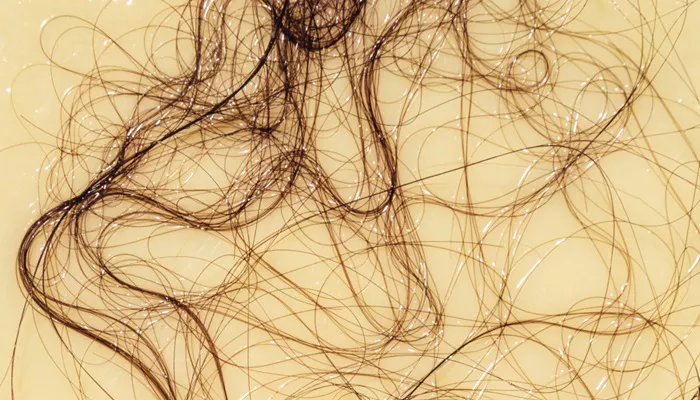Hair loss is a common concern that affects many individuals, and its causes can be complex and multifactorial. One significant factor that has gained attention in recent years is oxidative stress. This article explores the relationship between oxidative stress and hair loss, examining how oxidative stress can contribute to hair loss and discussing potential strategies for managing and mitigating its effects.
Understanding Oxidative Stress
Oxidative stress occurs when there is an imbalance between the production of reactive oxygen species (ROS) and the body’s ability to neutralize or repair the damage caused by these ROS. ROS are highly reactive molecules that can damage cellular components, including proteins, lipids, and DNA. This damage can lead to cellular dysfunction and contribute to various health conditions, including hair loss.
Sources of Oxidative Stress
Environmental Factors:
Exposure to environmental pollutants, ultraviolet (UV) radiation, and toxins can increase the production of ROS in the body. For instance, prolonged sun exposure can generate free radicals that damage skin cells and hair follicles.
Lifestyle Factors:
Diets high in processed foods, excessive alcohol consumption, smoking, and lack of physical activity can contribute to oxidative stress. Poor lifestyle choices can exacerbate ROS production and reduce the body’s antioxidant defenses.
Biological Factors:
Aging is associated with increased oxidative stress due to the gradual decline in the body’s antioxidant defenses. Additionally, certain medical conditions, such as diabetes and cardiovascular disease, can also elevate oxidative stress levels.
The Impact of Oxidative Stress on Hair Follicles
Hair follicles are highly sensitive to oxidative stress. The effects of oxidative stress on hair follicles can be observed in several ways:
Damage to Hair Follicle Cells:
ROS can damage the cells within hair follicles, leading to impaired hair growth and follicle function. This damage can disrupt the hair growth cycle, leading to hair thinning and shedding.
Inflammation:
Oxidative stress can trigger inflammatory responses within hair follicles. Chronic inflammation can contribute to conditions like androgenetic alopecia (male and female pattern baldness) and alopecia areata, which are characterized by hair loss.
Disruption of Hair Growth Cycle:
The hair growth cycle consists of three phases: anagen (growth), catagen (transition), and telogen (rest). Oxidative stress can disrupt this cycle, leading to premature entry into the telogen phase and resulting in excessive hair shedding.
Compromised Blood Supply:
ROS can damage the blood vessels supplying hair follicles, reducing the delivery of essential nutrients and oxygen. This compromised blood supply can hinder the growth and health of hair follicles.
Evidence Linking Oxidative Stress to Hair Loss
Several studies have investigated the relationship between oxidative stress and hair loss, providing evidence of a connection:
Clinical Studies:
Research has shown that individuals with certain types of hair loss, such as androgenetic alopecia and alopecia areata, often exhibit increased oxidative stress markers. These studies suggest that oxidative stress may play a role in the development and progression of these conditions.
Laboratory Studies:
In vitro studies using hair follicle cells have demonstrated that exposure to ROS can induce cell damage and apoptosis (programmed cell death). These findings support the hypothesis that oxidative stress can negatively impact hair follicle health.
Animal Studies:
Animal models of hair loss have revealed that oxidative stress can lead to hair follicle damage and impaired hair growth. These studies provide further insight into the mechanisms by which oxidative stress may contribute to hair loss.
SEE ALSO: Why Do I Lose So Much Hair in the Fall?
Managing and Mitigating Oxidative Stress for Hair Health
While oxidative stress can contribute to hair loss, there are several strategies to manage and mitigate its effects:
Antioxidant-Rich Diet:
Consuming a diet rich in antioxidants can help counteract oxidative stress. Foods high in vitamins C and E, selenium, and polyphenols can help neutralize ROS and protect hair follicles. Examples of antioxidant-rich foods include fruits, vegetables, nuts, and seeds.
Topical Antioxidants:
Some topical treatments contain antioxidants that can be applied directly to the scalp to reduce oxidative stress. Ingredients such as vitamin C, vitamin E, and green tea extract are commonly used in hair care products for their antioxidant properties.
Healthy Lifestyle Choices:
Adopting a healthy lifestyle can help reduce oxidative stress. Regular physical activity, adequate sleep, and avoiding smoking and excessive alcohol consumption can support the body’s antioxidant defenses and overall health.
Stress Management:
Chronic stress can contribute to oxidative stress and exacerbate hair loss. Practicing stress-reducing techniques such as mindfulness, meditation, and relaxation exercises can help manage stress levels and support hair health.
Medical Interventions:
In cases where oxidative stress is linked to underlying health conditions, addressing these conditions with appropriate medical treatment can help reduce oxidative stress and its impact on hair loss. Consulting with a healthcare professional can provide personalized recommendations based on individual health needs.
Conclusion
Oxidative stress is a significant factor that can contribute to hair loss by causing damage to hair follicles, triggering inflammation, and disrupting the hair growth cycle. Evidence from clinical, laboratory, and animal studies supports the link between oxidative stress and various types of hair loss. Managing oxidative stress through a balanced diet, healthy lifestyle choices, topical treatments, and stress management techniques can help support hair health and mitigate the effects of oxidative stress. By understanding and addressing oxidative stress, individuals can take proactive steps to maintain healthy hair and minimize the risk of hair loss.


